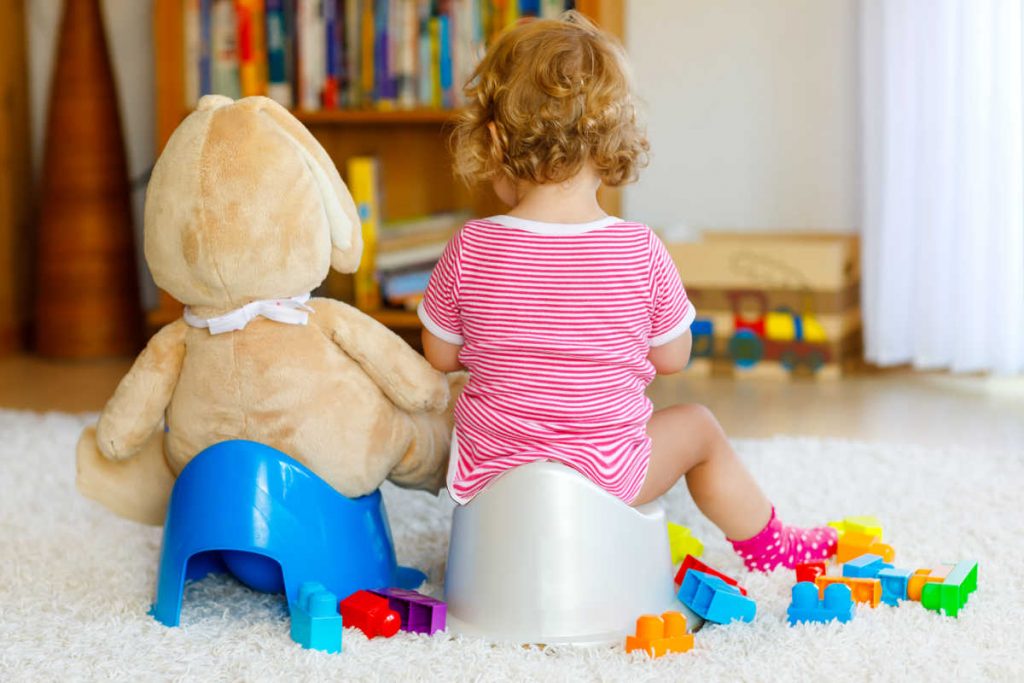Potty training is a challenging stage in a toddler’s development. If you turn it into a fun activity and involve your child right from the start, he or she will be more motivated and willing to learn.
Go shopping together for a potty and help your child choose some fun underwear. Take the potty home and ask your child if he or she wants to sit on it while playing or watching television.
Praise you child
In the beginning, praise your child just for sitting on the potty. It could be days or even weeks before he or she performs.
Encourage your child to sit on the potty at regular times throughout the day but don’t force the issue. Compelling a child to sit on a potty is very likely to lead to resistance and thus extend the time taken to toilet train.
You can use a system of rewards, the most common of which is a sticker chart, to help motivate your child and make potty training fun. However, you should ensure that you are not setting a standard that is too high for your toddler to achieve at his or her current stage of development. If your child constantly fails to meet the standard you set, he or she will feel de-motivated and may refuse to use the potty.
For example, in the initial stages of potty training, most toddlers do not have the necessary skills to stay dry for a long period of time. Therefore, at this stage, it would be appropriate to reward your toddler for simply sitting on the potty several times a day, rather than for having an accident-free day. You should also praise your child for recognizing when he or she has had an accident, because this is a step in the right direction in the potty training process.
Positive affirmations
Positive affirmations will always raise your child’s self-esteem and make him or her more motivated to learn, so try not to be negative or scold your child when he or she has an accident. The best way of dealing with accidents is just to say ‘Oh dear, you had an accident. Oh well, never mind. Let’s get you out of those wet clothes.’
In the later stages of potty training, rewards or treats can help a child to gain the additional amount of motivation needed to achieve total toilet training. For example, if your child is having only one accident every few days, you could reward each accident-free day, leading up to an accident-free week.
Rewards
Rewards can also be used at this stage to encourage a child to use the toilet rather than the potty. As a parent, you need to accept that potty training can be a long process requiring a lot of effort and patience on both sides. Although encouragement, praise and rewards can help the process along, each individual child will learn how to recognize, control and deal with body signals at his or her own pace.

